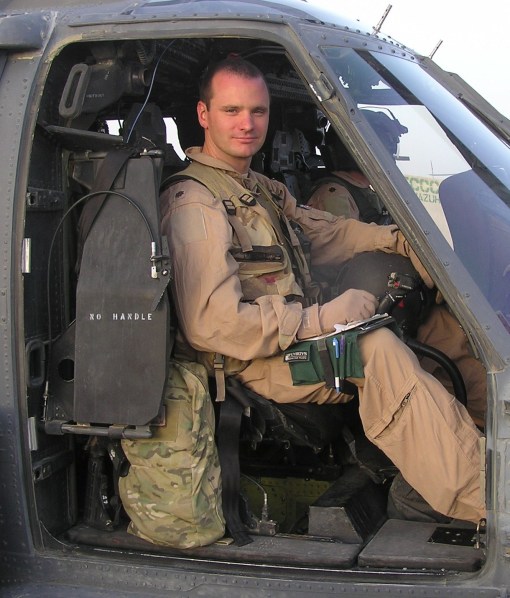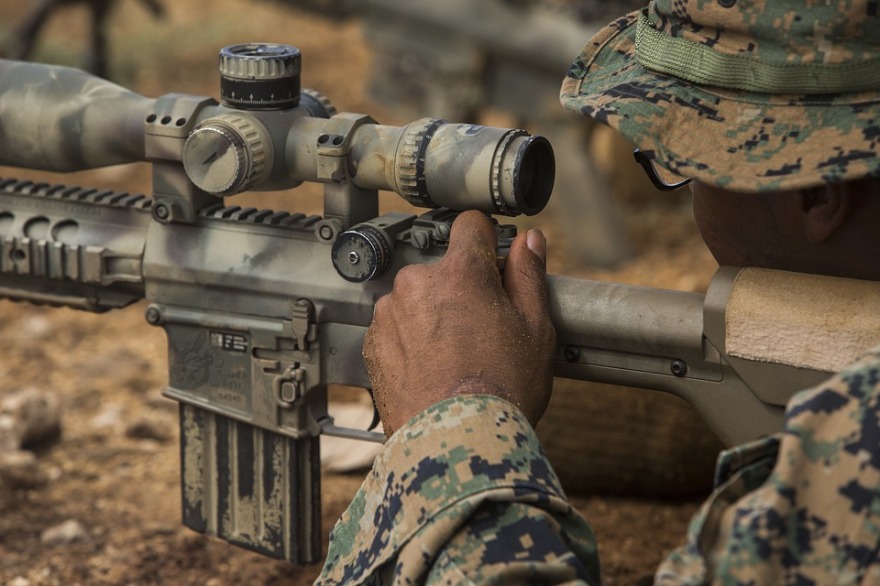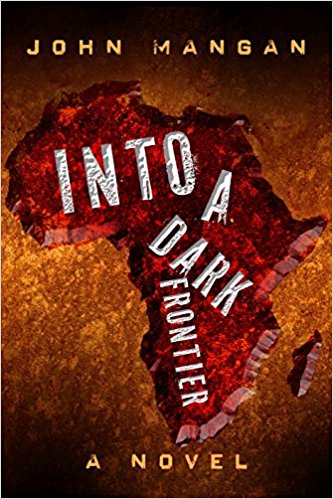
Writing Combat, After Combat
Like many young men I was raised on a steady diet of thrillers and military action novels. After devouring hundreds of books, ranging from Tom Clancy’s techno wizardry, to Robert Ludlum’s classics, and The Outrider series by Richard Harding, I figured that I had combat figured out. After all, I’d read thousands of action scenes that described in excruciating detail every conceivable combat move, gunshot, reload, judo chop, wound and scream. I’d lived through numerous dogfights, firefights, fistfights, bombings and ambushes. I’d sighted down my rifle, pulled the
4.5 lb match grade trigger, felt the recoil, and watched as my 62 grain, boat tailed hollow point bullet impacted a target, center of mass, at 3200 FPS. I was ready.
Then I was in combat, and what I realized within the first 30 seconds was that all those books had gotten it wrong. Phenomenally, epically wrong. Contrary to what I’d read, the experience of combat wasn’t just a linear series of physical events; instead, it was an enormously personal, tidal wave of primordial impulses and scalding, mind blanking fear. My favorite authors hadn’t only missed the mark, they’d been shooting in the wrong damn direction.

In retrospect, trying to understand combat by reading a thriller is like trying to understand sex by reading a medical textbook. Yes, you will arrive at a detailed understanding of what goes where, and who does what to whom, but ultimately, you won’t see the human side of the game. This is what separates pornography from explicit romance; One depicts a series of discreet physical acts, the other communicates a subjective human experience. Perhaps that’s the crux of the issue; one depicts, the other communicates. Like love, grief, or joy, combat is a complex emotional phenomenon that leaves a deep and wrenching impact upon the people who experience it.
So what was combat like? Imagine that you are on a rafting trip with your friends, thoroughly enjoying the adventure as you explore a new stretch of river. Suddenly, you enter whitewater and the raft begins bucking and spinning. You are tossed about and spray drenches you, but you find it exhilarating because your team responds as a well trained unit, working together, guiding the raft successfully through the chaos. You are going to make it. You are in control. Right up to the moment that you aren’t…

With a heave the raft overturns and you are thrown into the river. You and your team are now being swept along by the power of events far beyond your control, smashing into each other and off of rocks, rolling through rapids and tumbling off of falls. Your actions become base and instinctual, you reach for your comrades, hold your breath, stroke for the surface, and try to guild yourself around obstacles both seen and unseen. But you intuitively know that the best of your efforts are merely token gestures and that you are being carried along by a force more powerful than any single man caught up in it. This force has a will of its own and your attempts to influence it are more illusion than anything else. You will be released at the time of its choosing, not yours. For me, that was combat; being immersed in a force that was terrifyingly intimate, unknowable and beyond any measure of control.
So how did that experience guide the creation of Into a Dark Frontier? First and foremost, I think readers have grown numb to elaborate scenes describing combat in excruciating detail. In today’s world of hyper violent entertainment, the firing of a gun has become routine, the spattering of blood trite, the death of a human meaningless. That doesn’t mean that an artist should shy away from depicting violence, for it is part of the human experience. But how do you do it in a way that stirs your audience, leaves a lasting impression and advances the story? Strangely enough, I think that the poets of old did it best.
While eulogizing World War I in his epic poem, “The Second Coming”, W.B. Yeats didn’t even mention the horrors of trench warfare, instead, he said that a “blood dimmed tide is loosed, and everywhere the ceremony of innocence is drowned,” and “what rough beast, its time come round at last, slouches toward Bethlehem to be born?” In one short poem the entire terrible spirit of 1914-1918 is laid bare before you. By omitting physical details, Yeats swept away the clutter and unearthed the soul of the event, not only of the war itself, but what it meant for the future of humanity.
But a poet’s verse doesn’t always have to span continents and nations; Tennyson spoke of “men that strove with gods.”
Sir Walter Scott described, “The stern joy that warriors feel in foemen worthy of their steel.”
And who could forget Henry V’s blood curdling speech to the people of Harfleur?
(Edited for brevity)
The gates of mercy shall be all shut up
And the fleshed soldier, rough and hard of heart
In liberty of bloody hand shall range
With conscience wide as hell mowing like grass
Your fresh fair virgins and your flow’ring infants
While your pure maidens fall into the hand
Of hot and forcing violation.
O’erblows the filthy and contagious clouds
Of heady murder, spoil and villainy.
If not, why, in a moment look to see
The blind and bloody soldier with foul hand
Defile the locks of your shrill-shrieking daughters,
Your fathers taken by their silver beards
And their most reverend heads dashed to the walls,
Your naked infants spitted on pikes
While the mad mothers with their howls confused
Do break the clouds, as did the wives of Jewry
At Herods bloody-hunting slaughtermen
Just look at those incredible words! Foul hands, slaughtermen, shrill-shrieking, and heady murder. Not only is the poet allowed to paint with a more vivid palette, they are also given the freedom to strip away irrelevant physical details until they find not only the humanity of an event, but its enduring meaning as well. I think that combat, like love, is too complex and forceful to be restrained by the rules of prose. That is why lovers turn to music and poetry to express themselves. Perhaps warriors can as well.
“I think that combat, like love, is too complex and forceful to be restrained by the rules of prose.”
So who describes combat best in these modern times? My favorites are Cormac McCarthy, Charles Frazier, Anthony Loyd and James Salter. They are masters of lyrical prose, telling a sharp and detailed story that swerves into poetry at times and then back again before you even have time to hear the rumble strips. The beauty of their words are a counterpoint to the horrors they describe and I find myself drawn to their stories again and again.

Having said all this, am I satisfied with the action scenes in my novel Into a Dark Frontier? No, I am not. There’s a sentence here and there that I am proud of, maybe even a paragraph or two. I have a long way to go, but I’m confident that I’ll get there someday, and that’s what keeps me writing.
Have a reply for John? Tell us in the comments.
John Mangan
Author of Into a Dark Frontier
www.JohnManganBooks.com


I was part of Mystery Thriller Week 2017 with my empowering new adult, ‘What If I Go? Spread the word to parents of college kids and Freshers, please. Good luck with Into a Dark Frontier and the MTW 2018!
LikeLiked by 1 person
Hi Polly, thanks for chiming in!
LikeLike